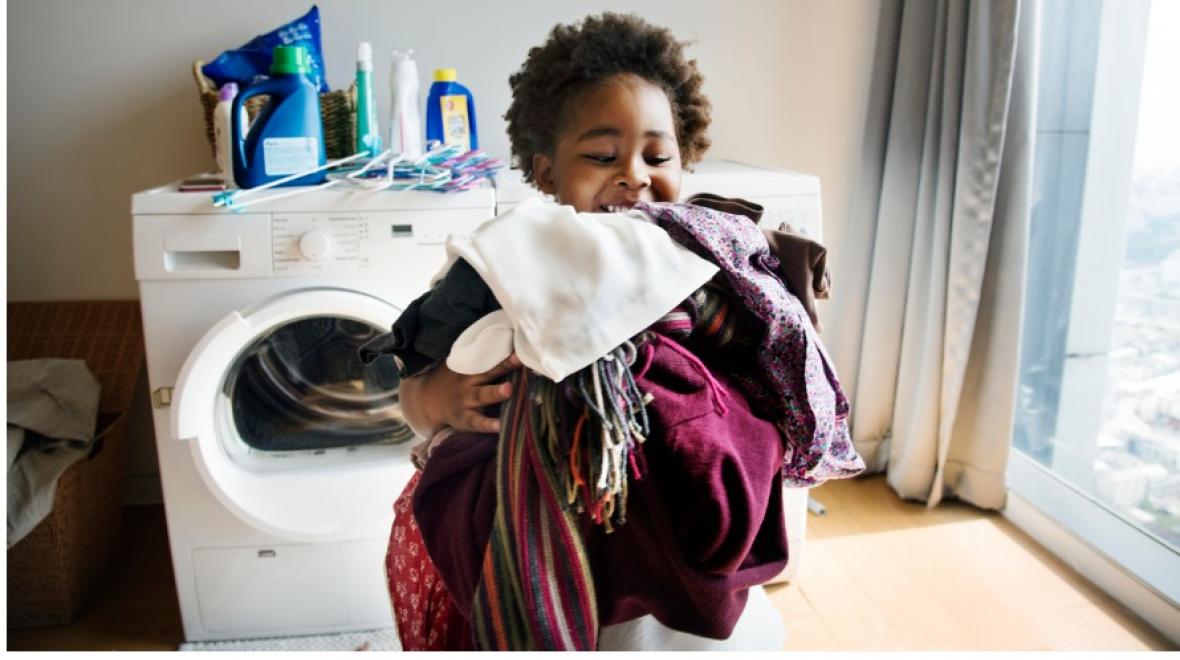
“Dad has so much to do this afternoon,” my son said. “He’s taking us to golf and he has to take out the trash. Dads are busy.” I waited for him to finish. “Moms are busy, too, taking care of us kids is hard.”
I nodded at him, glad that my 9-year-old realized that raising children is hard work, but slightly frustrated that he put all of the pressure on my shoulders. I wanted to tell him that due to his work schedule, his father rarely puts the trash cans out on weekday mornings. I wanted to remind him that his father was the parent home most afternoons overseeing homework and often starting dinner. I wanted to change his view of the gender roles, if only to save his future spouse from the frustration that so many feel today.
Then I realized that he saw what we presented to him: He saw that his mom does the majority of the housework, his father leaves the house to work each morning and, nine times out of 10, when he stays home from school sick, I’m the one home with him.
While this is how our family operates right now, it hasn’t always been that way, it won’t always be that way and it isn’t this way in other households. I want my kids to know that, to see that and to think about that.
I know that my family has room to improve where gender roles are concerned. I've spoken to experts to find out what mistakes I'm making — and how to change them. These three pitfalls are common, but the solutions are surprisingly simple.
Chores are doled out in gendered ways
One thing we can easily change is the perception that certain chores are for women and certain chores are for men. In fact, we already have. My husband is the bath giver in our house, a role my father filled in my childhood. This was something I insisted that “dads do” when my youngest was born, and I pushed it on my husband. It stuck. Apparently this is a “girl chore” in the eyes of some children.
Laundry and household chores usually fall to me, as the parent who is home more. But one thing I make sure my children see and hear is the conversation that takes place when we discuss chores. My son’s responsibility is emptying the dishwasher and my daughter does the laundry. They’ve talked about switching jobs, but they both like their own. When we clean the house as a family, we divide up chores and everyone participates. My husband will clean the bathroom and I will vacuum, or he will do the dishes and I’ll take out the trash.
Breaks from gender roles go unnoticed
There was one Saturday morning when the grass needed to be cut. So I made a big deal out of going outside to do it. Not because I wanted glory, but because I wanted to make sure my children knew I was capable and willing to do it. I wanted them to know it wasn't a “man thing” to do.
Teodora Pavkovic, parent coach and psychologist at The School of Positive Psychology, says that children will naturally associate their parents with where they see them. “If mom spends a lot of time in the kitchen, the children will associate kitchen activities with her, and if dad spends most of his time in the home office, the children will associate working at a computer with dad,” she says.
Mothers ask for help with the kids
In our military family world, we see parents doing things that cross traditional gender roles. We see it most often during deployments, when the women left behind are doing yard work and the men left behind are baking cookies for the bake sale at school. But we don’t make any fuss about it. We just do it, which is how it should be. But talking about it is important, too. I frequently ask my husband to help with something around the house. Pavkovic suggests this may show children that the responsibilities are not equal. By asking for help it means that caring for the house, cooking dinner or caring for children is my responsibility, not one we equally share. How can we change?
A great way to change the conversation is through books and play. While toys are frequently marketed to one gender or another, there is no reason parents need to adhere to that. Gender roles can be smashed early on by offering a variety of toys, allowing children to make their own decisions about hobbies and tasks they want to pursue.
Parenting is a huge responsibility. Raising children to be kind, open-minded and respectful of others is a daunting task, but one we can do by recognizing our own biases and finding ways to avoid passing them on to our kids.
You might also like: |
Editor’s note: This article was originally published in January 2018, and updated in January 2020.











